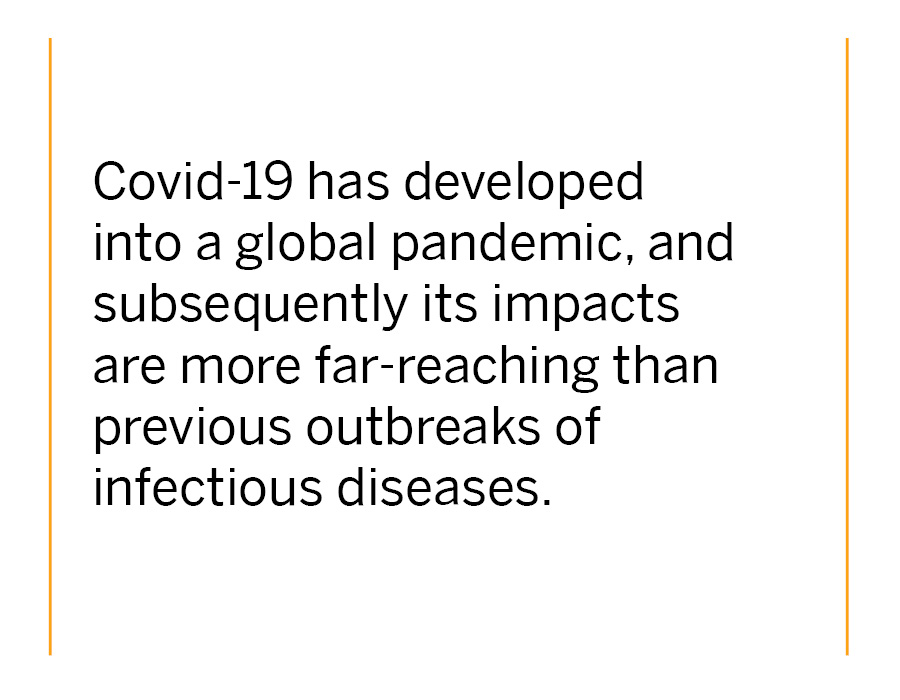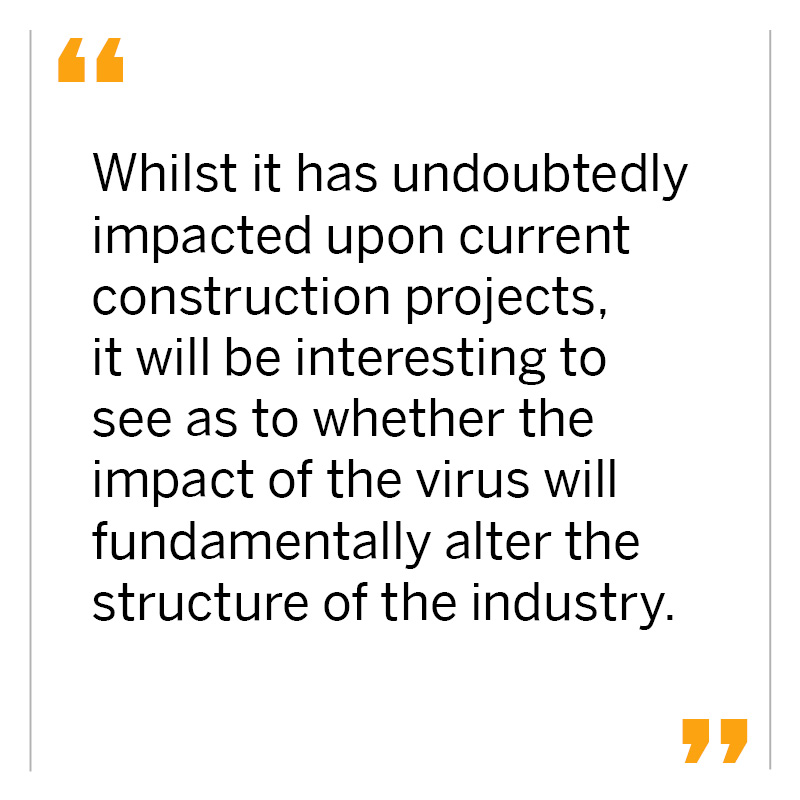For European contractors outsourcing in China
Whilst European countries grapple with a second surge of Covid cases, China – the original epicentre of the outbreak – has been relatively successful in controlling the virus.
For many projects in Europe that have supply or sub-contracted portions of their works in China, the challenge now is how can European contractors ensure oversight and management of this considering continuing and ever-changing restrictive governmental measures.
Author: Jacob Petrou, Driver Trett Consultant based in Rotterdam, the Netherlands.
The emergence and subsequent global spread of Covid-19 constitutes an unprecedented situation. At present, the rate of infections and sadly number of deaths continues to rise globally. Whilst draconian lockdown measures have shown so far to be the best method for containing the virus, it is impossible to predict when normality will return, or if it ever will.
 In the past few months, European contractors have had to consider the legal and contractual impacts on projects from COVID-19, in particular focusing on potential Force Majeure claims both upstream and downstream and the necessary steps to take to best safeguard their respective position. However, subsequent lockdowns and other measures enacted by governments globally to control the spread of the virus have not been universally applied at the same time, largely due to countries being at different stages of their fight against the virus.
In the past few months, European contractors have had to consider the legal and contractual impacts on projects from COVID-19, in particular focusing on potential Force Majeure claims both upstream and downstream and the necessary steps to take to best safeguard their respective position. However, subsequent lockdowns and other measures enacted by governments globally to control the spread of the virus have not been universally applied at the same time, largely due to countries being at different stages of their fight against the virus.
This has led to, and continues to create, considerable logistical and operational challenges for European contractors to resume and continue management of their works in China.
Continuing travel restrictions and quarantine requirements in place between Europe and China presents the challenge: how can a contractor in Europe ensure oversight of works in China? This lack of a physical presence overseeing the works, including the reduced, or even absence, of a contractor’s site management and quality inspectors, can therefore make it difficult to ensure that works are conducted to the contract level of quality and/or the level according to local requirements. This could lead to ‘shortcuts’ being taken, and poor-quality work being produced; the latter scenario could mean that such work would need to be re-done at a later stage thereby creating even more costs and delays. Contractors that already have in place existing local networks are in a better position to mitigate against this. Local staff can be called upon to assume a degree of oversight of the works. This can help ensure communication and expectations remain clear between each party when physically working on site, which, in turn, can benefit the quality of work produced. Moreover, current labour shortages being experienced within China, due to on-going screening, quarantine requirements, and travel restrictions, can also be better dealt with. Contractors can rely upon established networks that have an in-depth knowledge of the local labour market, and an understanding of prevailing governmental restrictions where the works are located.
Whilst governmental restrictions have largely focused on the curtailment of individual movement, Covid-19 has also reduced and disrupted the flow of goods on the global supply chain. Lockdown measures have led to increased delays of goods transported between countries. Within China itself the movement of cargo had been halted between different provinces to help stem the spread of the virus. Whilst the situation appears to be better than it was earlier this year, uncertain delivery times of key materials and supplies also creates further potential delay for work in China: works are delayed (or cannot resume at all) without the necessary materials and supplies being able to reach factories and fabrication sites. Subsequent localised lockdowns and restrictive measures within China and in Europe once again threatens to exacerbate this situation. Where items are to be procured by nominated European vendors/suppliers (or vice versa), allowing for such items to be sourced from within China itself may help to alleviate expected delivery delays – thus, reducing longer delivery times and minimising delays associated with added bureaucracy for imported items.
 Yet, even this option still creates additional challenges such as required auditing for new vendors and suppliers to take place. This takes time and approval of using a proposed new vendor or supplier is not a given; even within China certain travel restrictions remain, meaning travelling to different provinces can be difficult for physical inspection. Removing certain supply and installation scope of work items from the relevant sub-contract/supply agreement could also be an option, with such items instead being procured and installed in Europe by the contractor.
Yet, even this option still creates additional challenges such as required auditing for new vendors and suppliers to take place. This takes time and approval of using a proposed new vendor or supplier is not a given; even within China certain travel restrictions remain, meaning travelling to different provinces can be difficult for physical inspection. Removing certain supply and installation scope of work items from the relevant sub-contract/supply agreement could also be an option, with such items instead being procured and installed in Europe by the contractor.
However, this may not be practically possible depending on the buildability and sequencing of the works, in addition to the contractor taking on added contractual risks in the process. Despite these logistical challenges concerning works in China, it is vital that detailed records and stringent oversight (where possible) remains to ensure that contractors are in a good position to fully deal with and substantiate any claims both upstream and downstream that have arisen out of the Covid-19 pandemic.
The emergence and spread of Covid-19 has been unprecedented. Whilst it has undoubtedly impacted upon current construction projects, it will be interesting to see as to whether the impact of the virus will fundamentally alter the structure of the industry. For European projects in particular, will contractors resume the outsourcing of parts of their works to China and other areas of the world to gain savings in both cost and time for themselves? Or will the impact of Covid-19 force European contractors to re-evaluate this practice that has been commonplace over the preceding decades? This crisis has shown the fragility of such global supply chain networks, where risks that were once considered only localised now having the ability to impact globally due to our increased interconnectedness. Perhaps it is time therefore to reconsider the old adage of ‘Think globally, act locally’ into ‘Averse globally and source locally’.
European contractors may subsequently revert back to procuring portions of their works closer to home: although such a move may mean greater costs and take longer to complete, doing so could help better safeguard the project in general – localised rather than global risks would be easier to deal with and subsequent impacts better mitigated. The re-introduction of restrictive measures in Europe to combat against a second (or even a third) wave of Covid-19 may also add further traction to the argument of moving towards this model of contracting in the future.
Time will tell as to whether European contractors could or should move beyond solely looking at their projects through a cost-time prism.